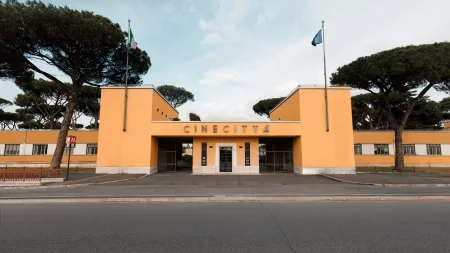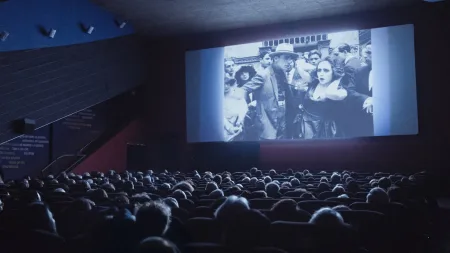24 July 2025
Roland Sejko’s ‘Film di Stato’ will premiere at Giornate degli Autori
The new documentary by the Albanian filmmaker, produced and distributed by Luce Cinecittà, retraces forty years of Enver Hoxha’s regime through rare and previously unseen archival footage

Film di Stato, the New Documentary by Roland Sejko will be premiering at Notti Veneziane, a section curated by Giornate degli Autori in collaboration with Isola Edipo, Film di Stato is the latest documentary by Roland Sejko, produced and distributed by Luce Cinecittà. The director has a history of successful results in Italy, having helmed Anija – The Ship, David di Donatello for Best Documentary and The Image Machine of Alfredo C., Nastro d’Argento for Best Docufilm.
The film offers a visual immersion into the Albanian dictatorship that lasted from the end of World War II until 1990, a place and time closely tied to the life and legacy of the regime head Enver Hoxha. Film di Stato gives rare sensory access to that historical period, allowing us to see, hear, and feel its atmosphere, through its rituals, silences, speeches, expectations, crowds and loneliness, grand spectacles and liminal spaces, capturing both the deafening machinery of propaganda and the enclosed silence of a leader. Drawing from often unseen archival material produced by the regime itself, Sejko builds what might be described as a “soundtrack of power,” not only tracing the historical arc of an autocracy but also offering a broader reflection on power and its inherent blindness. The filmmaker once again proves himself to be one of Italy’s most best directors in transforming archival footage into visual poetry.
From the end of World War II and for over forty years, the Albania’s fate was inextricably bound to Enver Hoxha, who led the country through fleeting alliances and radical breakups, ultimately isolating it from the rest of the world. Film di Stato tells the story of those four decades of communist rule through the very images the regime itself produced to tell its own version of history. Entirely built from archival material, spanning from official propaganda films to private footage and recordings from the regime’s restricted archives, the film works as a journey through the sounds and visuals of a dictatorship that used cinema as a tool to strengthen its power.
“Film di Stato is made only of pre-existing footage, but it tries, through editing, sound, and rhythm, to craft a narrative different from the one those images were meant to impose. The goal isn’t simply to show, but to transform; to uncover propaganda’s cracks, silences, and signs of an alternative reading, and perhaps, through that, to offer another reading of reality itself,” said the director.



